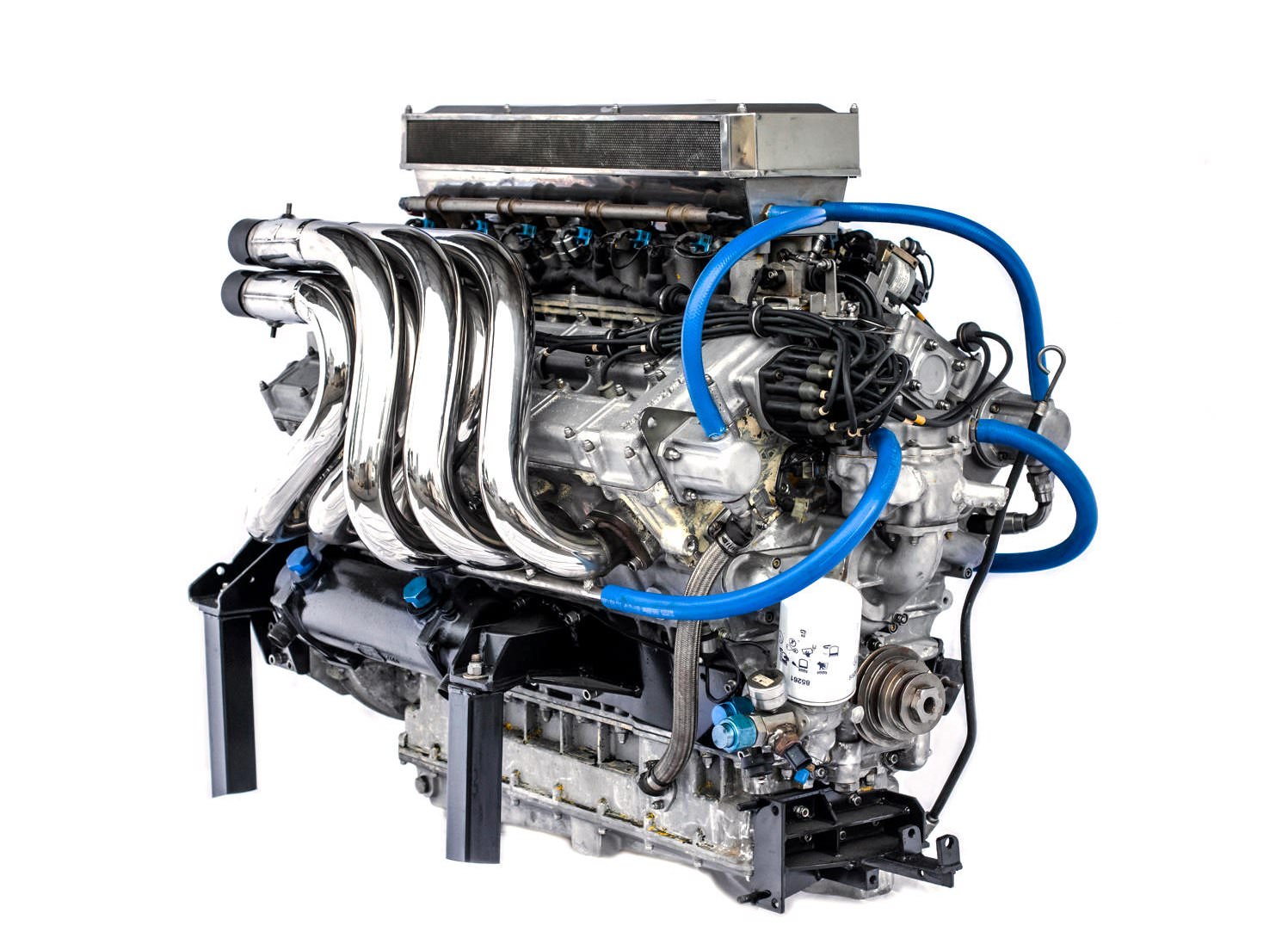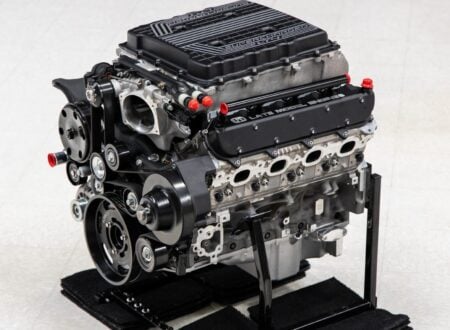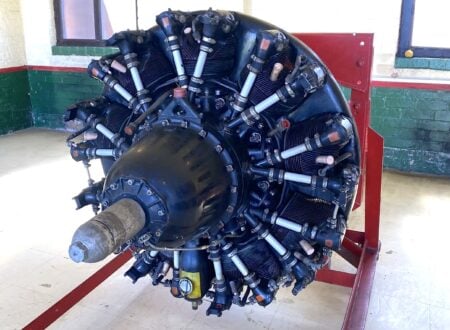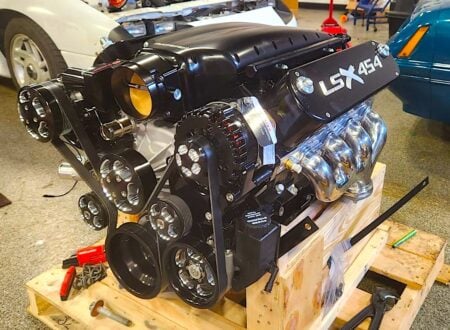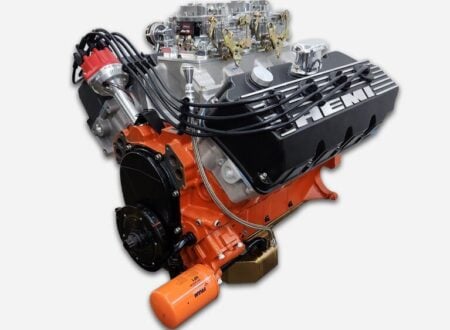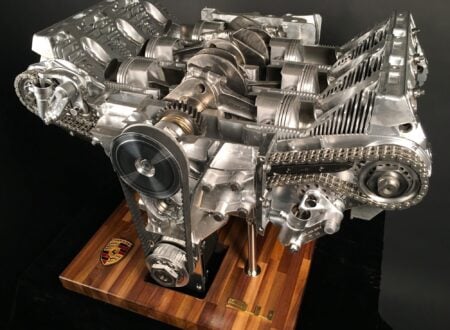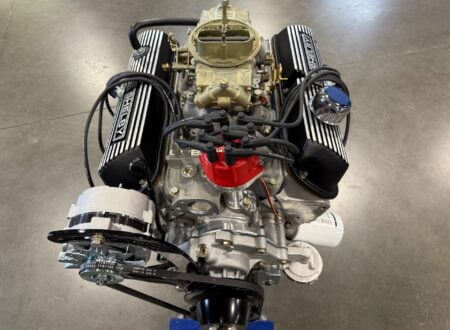This is a Lamborghini L900 marine engine, it’s a 9.3 liter V12 capable of 770 bhp, and it was designed to power high-speed luxury boats for whom a more traditional marine V8 might seem a little too common.
The story of just how Lamborghini got into the marine engine business dates back to May of 1968, when Ferruccio Lamborghini placed an order with Riva for a Riva Aquarama – a luxury wooden speedboat still considered by many to be the finest of its kind in the world.
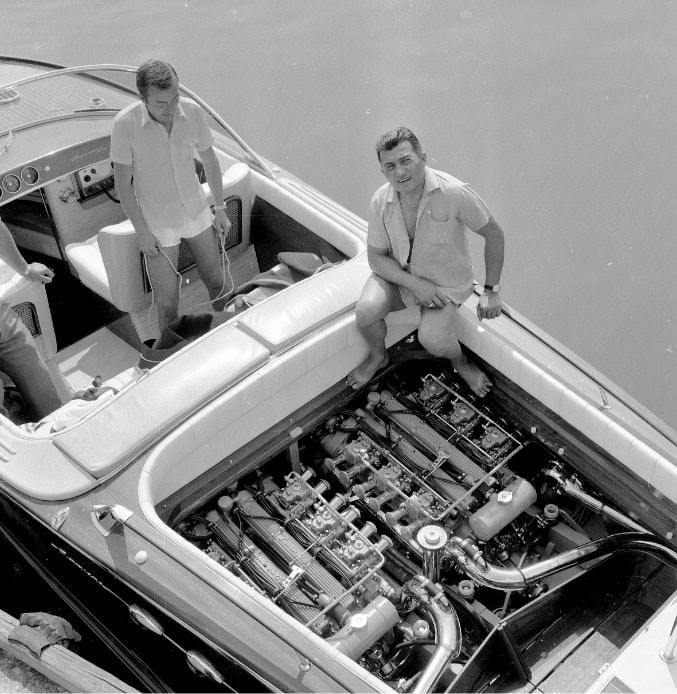

The Riva Lamborghini
In 1968 Automobili Lamborghini had one of the most impressive model line-ups in the world, including the Lamborghini Miura, Lamborghini Islero, and the Lamborghini 400 GT. Company founder Ferruccio Lamborghini had become a major rival of Enzo Ferrari, and this rivalry between the two Italian automakers would continue unabated for decades, right up to the modern day.
When Ferruccio ordered his Riva Aquarama the factory got to work on the hull immediately in the famous Cantiere Riva workshops on the shores of Lake Iseo in Northern Italy. The order stipulated that the boat would need to be ready in just three months, which was a very quick turnaround time for a vessel that required so much handcrafted wood.
Rather that using the standard pair of marine V8s for his Aquarama, Ferruccio instead opted to have a pair of his own Lamborghini V12 engines modified for marine use and fitted to the boat. This made it the fastest and most powerful Aquarama ever made.
The creation of this unique Lamborghini V12-powered Aquarama seems to have had a major influence on Ferruccio. He would become involved in the world of high speed boat racing, sometimes even piloting the race boats himself.
The Lamborghini Marine V12 Engines
Ferruccio Lamborghini would later commission Aldo Cicero to develop a pair of closely related, large-displacement V12 engines specifically for marine use. These engines were the 9.3 liter L900 intended for large luxury boats, and the 8.0 liter L802 which was developed for racing.
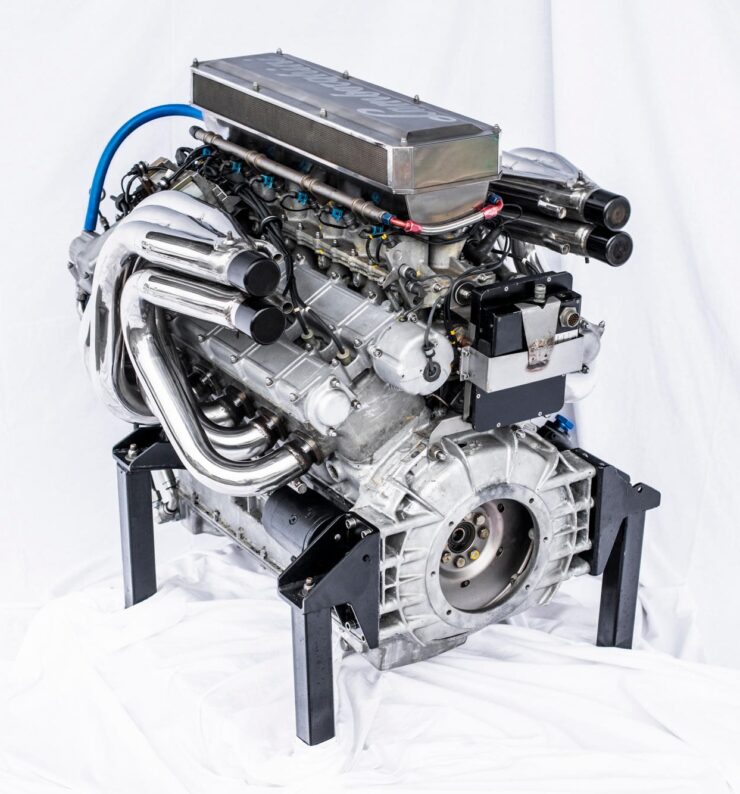

Of these two engines, the larger carbureted 9.3 liter L900 was designed for a combination of longevity and reliability, and as a result it produced “only” 770 bhp. The smaller fuel-injected 8.0 liter L802 was designed for powerboat racing, it didn’t need to last long term and rebuilds could be frequent, so it was tuned to produce upwards of 900 bhp.
The exact displacements of these engines did vary somewhat, we know that the L802 was built in slightly larger sizes up to 8.3 liters and perhaps more, but they started out at the displacements shown above.
By the early 1980s the Motori Marini Lamborghini V12s were among the best in the fast-paced, big money world of offshore powerboat racing. Lamborghini engines are still used today in many of these boats, and there’s a small but tight knit community of collectors who specialize in finding, rebuilding, and maintaining them.
The Lamborghini L900 Marine V12 Shown Here
The engine you see here is one of the larger displacement 9.3 liter, carburetor-fed V12s that was developed for use in luxury boats. This specific example was bought by the current owner, and now seller, as a spare unit for use in their own boats.
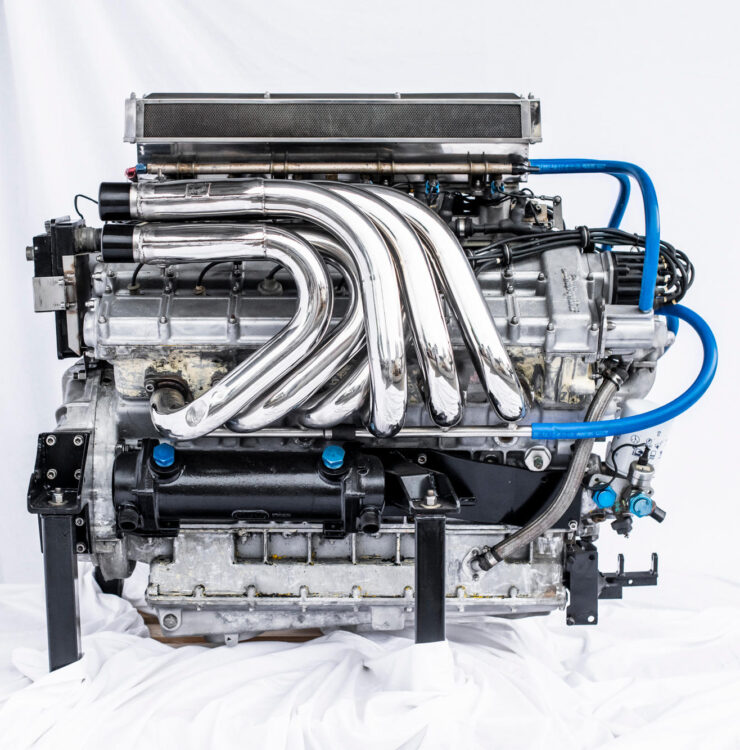

It is believed to be complete but the listing notes that it’s untested. This means that if the new owner wanted to run or install and use the engine they would need to budget for a full inspection at the bare minimum, and possibly a rebuild to ensure reliable operation.
It’s now due to cross the auction block with Bonhams on the 30th of June with a price guide of 25,000 – 50,000 CHF, which works out to approximately $28,000 – $56,000 USD. If you’d like to read more about it or register to bid you can visit the listing here.
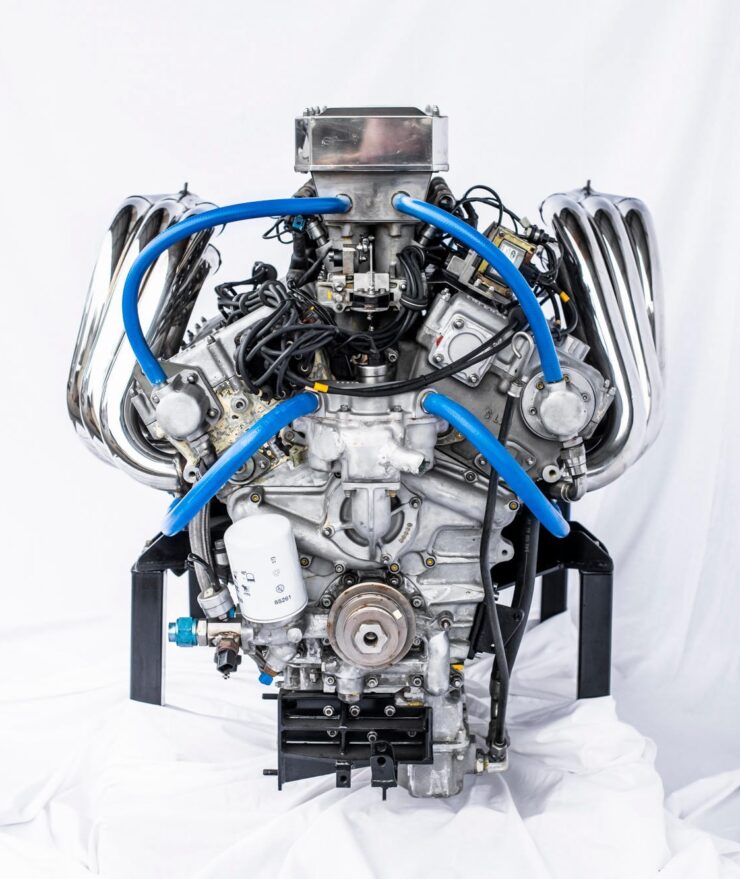
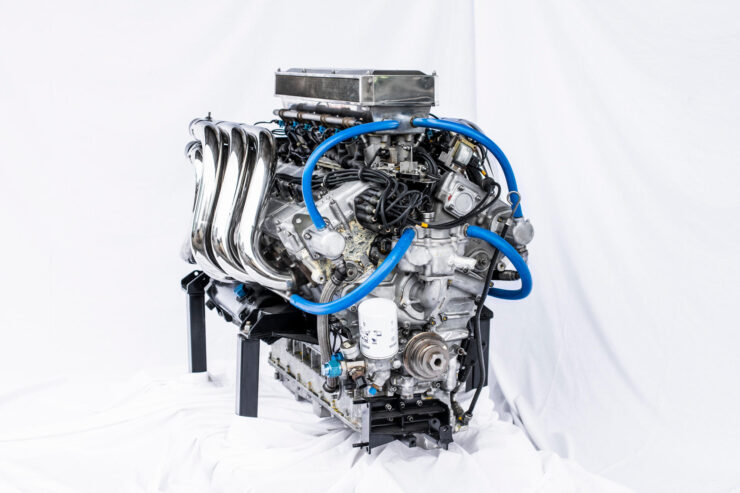
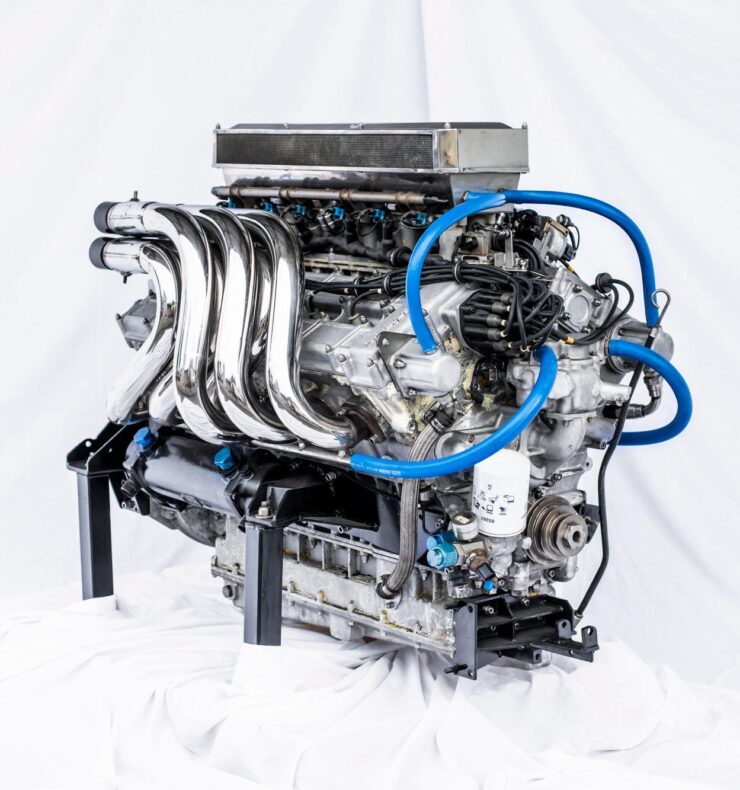
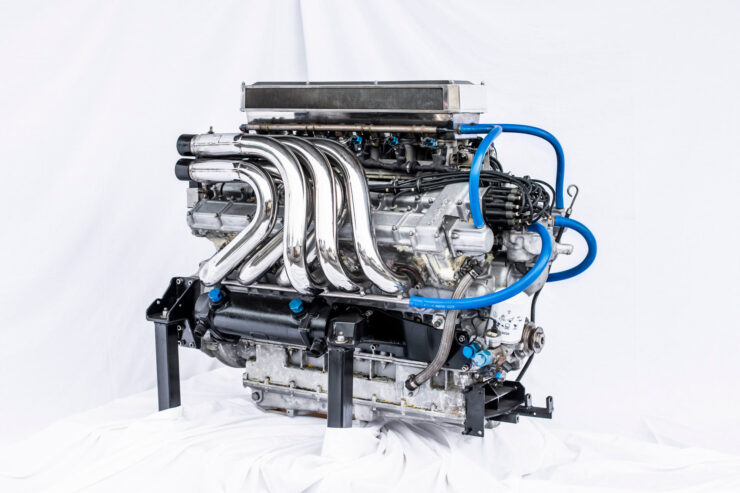
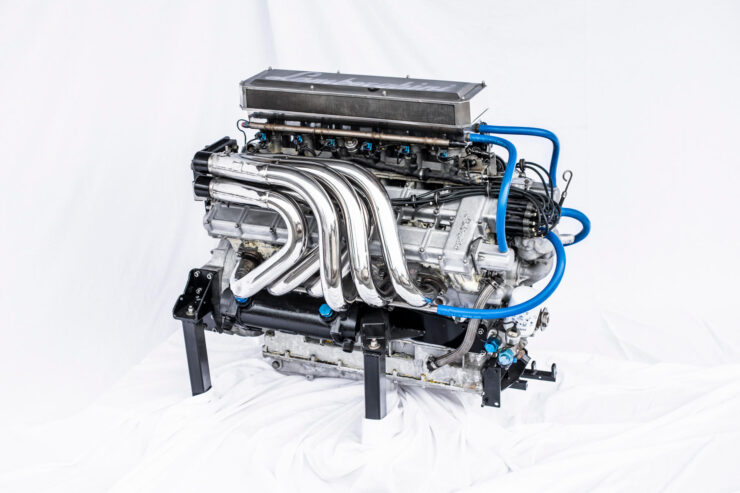
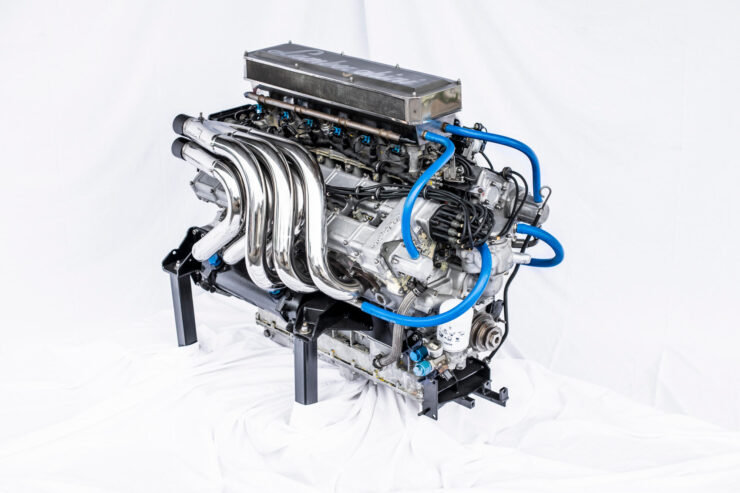
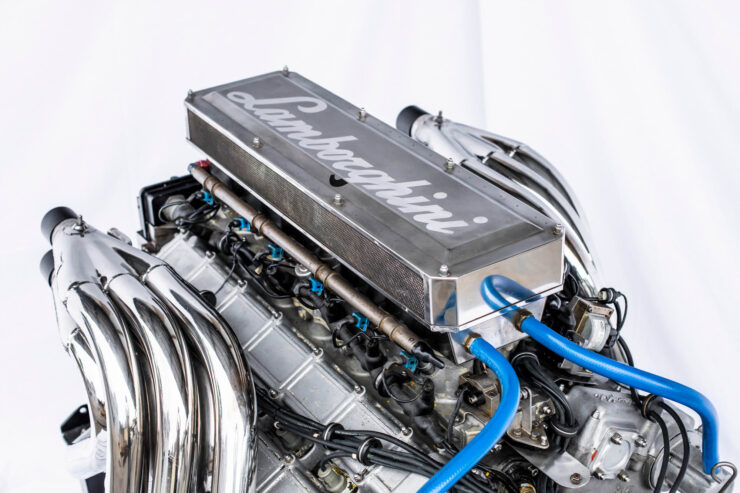
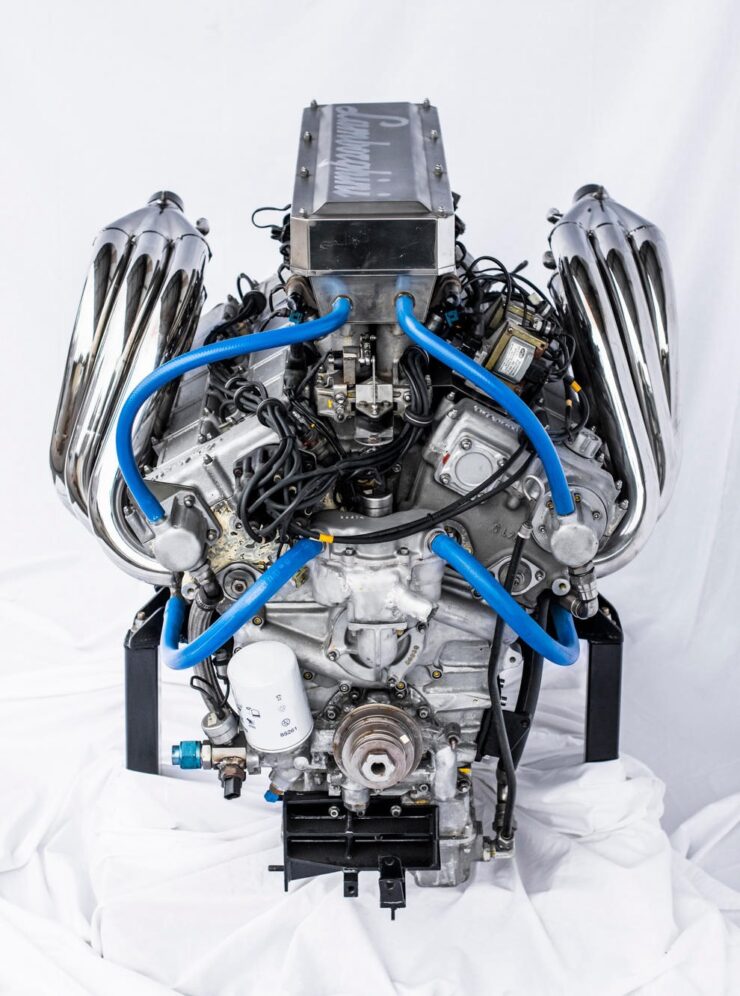
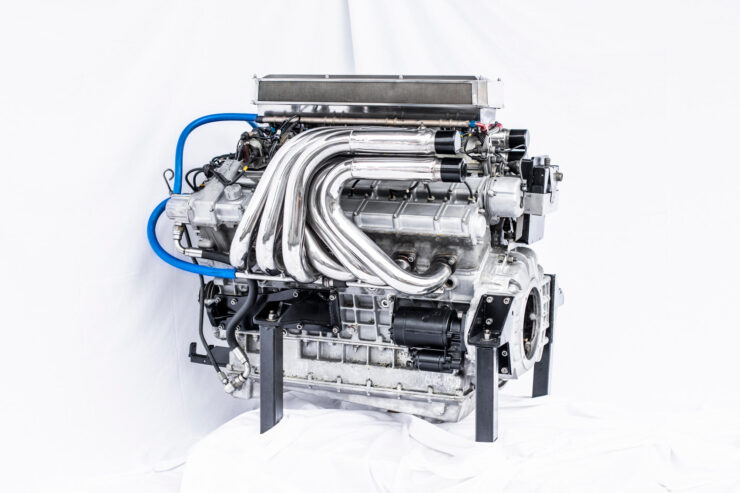
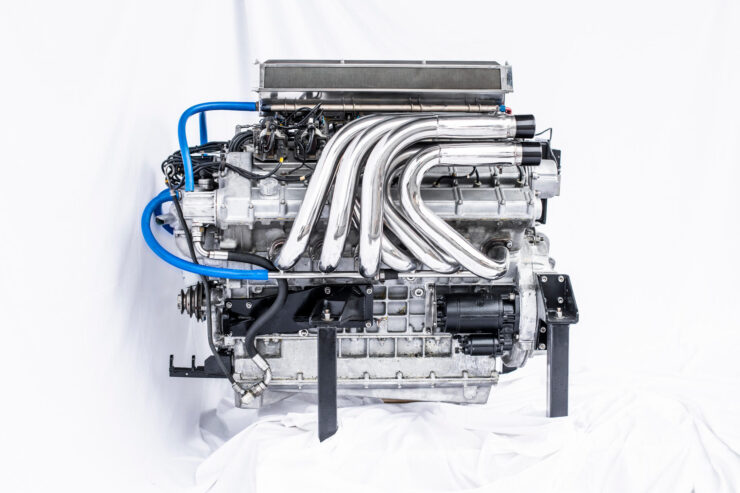
Images courtesy of Bonhams

